Feed aggregator
Multiverse 8 Snippet 4
Here is a snippet from the story Rolling Tide of Darkness:
Normal 0 false false false EN-US X-NONE X-NONE MicrosoftInternetExplorer4 /* Style Definitions */ table.MsoNormalTable {mso-style-name:"Table Normal"; mso-tstyle-rowband-size:0; mso-tstyle-colband-size:0; mso-style-noshow:yes; mso-style-priority:99; mso-style-qformat:yes; mso-style-parent:""; mso-padding-alt:0in 5.4pt 0in 5.4pt; mso-para-margin:0in; mso-para-margin-bottom:.0001pt; mso-pagination:widow-orphan; font-size:11.0pt; font-family:"Calibri","sans-serif"; mso-ascii-font-family:Calibri; mso-ascii-theme-font:minor-latin; mso-fareast-font-family:"Times New Roman"; mso-fareast-theme-font:minor-fareast; mso-hansi-font-family:Calibri; mso-hansi-theme-font:minor-latin; mso-bidi-font-family:"Times New Roman"; mso-bidi-theme-font:minor-bidi;}
UO5-16 Destroyed Hyperbridge Star System, Upsilon Sector
The first Necron-Xeno alliance convoy arrived in the destroyed star system with the usual explosion of expended energy as they exited hyperspace.
There were twelve ships in the convoy; they immediately sent out four cruisers to scout ahead of them. The rest of the task force then reoriented and set sail for the neighboring star system. It would take a few hours to cross to a point where they could jump into hyperspace once more.
Hazel Irons III was awake upon their arrival. The second generation clone was eager to get started. She knew there was a ticking clock; she needed to prove herself to her queen before an ansible transport arrived and the link to the alliance was established.
She also needed to set her hooks into the sector quickly. She was aware that their partners would no doubt be sending their own expedition. After all, they had been the ones to send the first two Preserver ships and find the partial hyperbridge to the virgin sector.
Her lips quivered in a smirk. Well, virgin to her queen for the moment. But like many virgins facing invasion, it would not be a virgin for much longer.
Soon the rather small and mostly unpopulated sector would be conquered and added to the collective. It would become a place for the alliance to grow more ships and fighters for the war to consume the galaxy. It would be a new unknown front against the Federation forces in the Tau sector.
All of that had to wait, however. She had a mission to perform. To do that, she had to push and exercise her limited initiative to dig her hooks into the sector as quickly as possible.
Once the Necron and AI navigators were ready, the ships jumped into hyperspace once more.
~///*\\\~
UR34DP-17 Empty Star System -Necron Cryptorium Preserver II
Cerberus, the Guardian of Tomorrow, stomped through the hidden base’s alabaster and black marble corridors to the command center.
He didn’t need to move in haste but did so because of the urge to do something, even if it was little.
“Report,” he barked, red eyes glowing with anger and purpose.
“Ship arrival detected,” a Necron voice whispered.
“Multiple ships detected,” another voice stated.
“Passive sensors are too far out to get a definitive identity,” the first voice whispered.
The knight paused and turned to the Caretaker as she gently laid a hand on his arm as if to brush past him. She glided into the room and then paused.
“Defense is my domain,” he warned.
“So be it. If we are in need of defense, you will of course be in command. But for the moment, we continue to hide.”
“Agreed,” the knight commander growled.
~///*\\\~
Hazel noted that there was no attempt to contact them upon arrival. That was irritating. She had been warned that the base was hidden. “Olly olly in free,” she whispered.
She saw the Necron ship captain turned to her.
She shrugged. “Worth a shot,” she joked. He did not react to her attempt at levity.
“Tough crowd,” she said as she looked around the room. “Have we established that there is no one else in the star system?”
“Confirmed,” a Necron sensor tech reported.
She looked to the captain. “May I suggest we transmit our IFF and any codes to get the Cryptorium to report its presence?” she asked mildly.
The Necron ship captain went over to his throne and tapped in a command. After a moment, a pulse could be seen echoing out from the flagship in a wave. A second pulse of information followed a moment later.
Attempting to make contact with the Cyptorium was important in the grand scheme of things, Hazel noted. The question was would they reveal their presence?
~///*\\\~
The Caretaker was on hand when the signals came in. The first identified the ships as from the alliance; the second was a command to contact the ships. That would of course reveal their location within the star system. “It has been confirmed. They are friendly and are aware of our presence,” she said with a look to the knight.
The rest of the council had been woken from their stasis slumbers and were present.
“Do you concur that they are not a threat.”
“They are not a threat … for now,” the knight ground out, clearly unhappy with anyone knowing of their location.
~///*\\\~
The ruling council was wary of the order to reveal themselves. Instead, they bounced a signal off of several rocks to hide their location.
The bounces delayed the conversation. It was ultimately in their favor; other than the order to reveal themselves, the newcomers did not have any other codes or a message from the Gravemind or Guiding Intelligence.
~///*\\\~
The Suspension Bridges of Disbelief
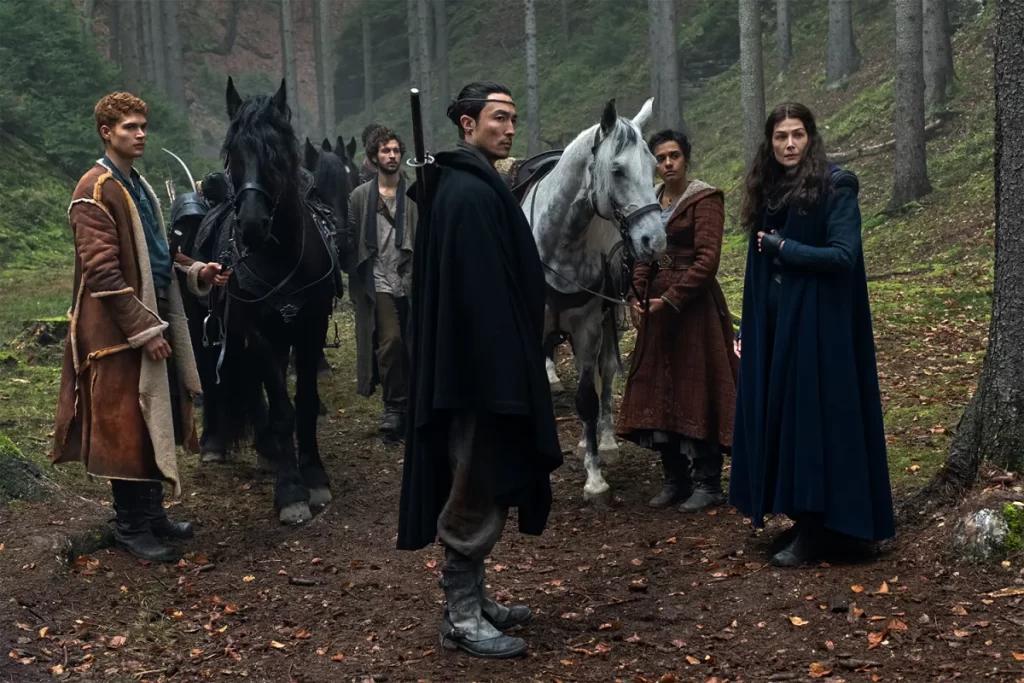 A friend and I have been watching The Wheel of Time adaptation on Amazon. Both of us expressed surprise not at the open casting, which we agree is wonderful, but at how that production choice plays out in small hamlets like Rand al’Thor’s “home town” of Two Rivers. After observing that every possible racial group is represented in this isolated, insular mountain community, my friend had an epiphany.
A friend and I have been watching The Wheel of Time adaptation on Amazon. Both of us expressed surprise not at the open casting, which we agree is wonderful, but at how that production choice plays out in small hamlets like Rand al’Thor’s “home town” of Two Rivers. After observing that every possible racial group is represented in this isolated, insular mountain community, my friend had an epiphany.
“I had to remind myself,” said my friend, “that if I suspend disbelief to accept that there’s magic in this world, then I might also have to suspend my disbelief in genetics.”
But isn’t it curious, how difficult this can be? The addition of magic in the Robert Jordan universe does not imply the generalized suspension of basic science, but the casting choices made in populating the Two Rivers absolutely does. Surely, under normal conditions, a group of people who initially look very different and then happily intermingle and intermarry over several generations would soon produce a population exhibiting mostly blended rather than outlying traits?
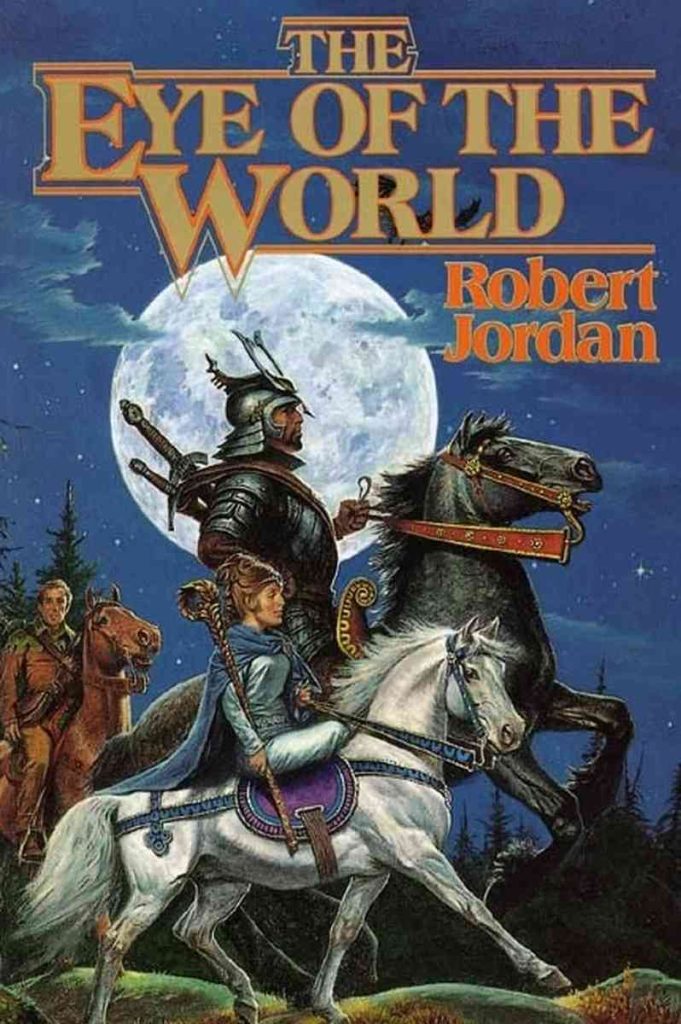 So, if genetics is getting tossed out the window, what’s next? Photosynthesis? The electron constant? Algebra?
So, if genetics is getting tossed out the window, what’s next? Photosynthesis? The electron constant? Algebra?
I once had a housemate who professed a hatred of musicals, both on stage and on film. He explained that he simply couldn’t get around the idea that when people feel a ton of emotion, they break into song. I thought (but did not quite say) that that’s exactly when people are most likely to spontaneously burst into song.
 Pro or con, musicals mark another instance where we either go along for the ride, suspending our disbelief when our heroes start warbling and trilling –– also when a brass band kicks in out of nowhere, playing (let’s say) “Seventy-Six Trombones”––or we cross our arms, huff and puff, and complain that musicals “aren’t realistic.”
Pro or con, musicals mark another instance where we either go along for the ride, suspending our disbelief when our heroes start warbling and trilling –– also when a brass band kicks in out of nowhere, playing (let’s say) “Seventy-Six Trombones”––or we cross our arms, huff and puff, and complain that musicals “aren’t realistic.”
But what is? Howard Shore’s exceptional score for The Lord of the Rings has nothing to do with realism. The Fellowship of the Ring is not accompanied on its journey by a traveling orchestra –– and if it were, wouldn’t we throw up our hands and declare the film to be entirely unbelievable?
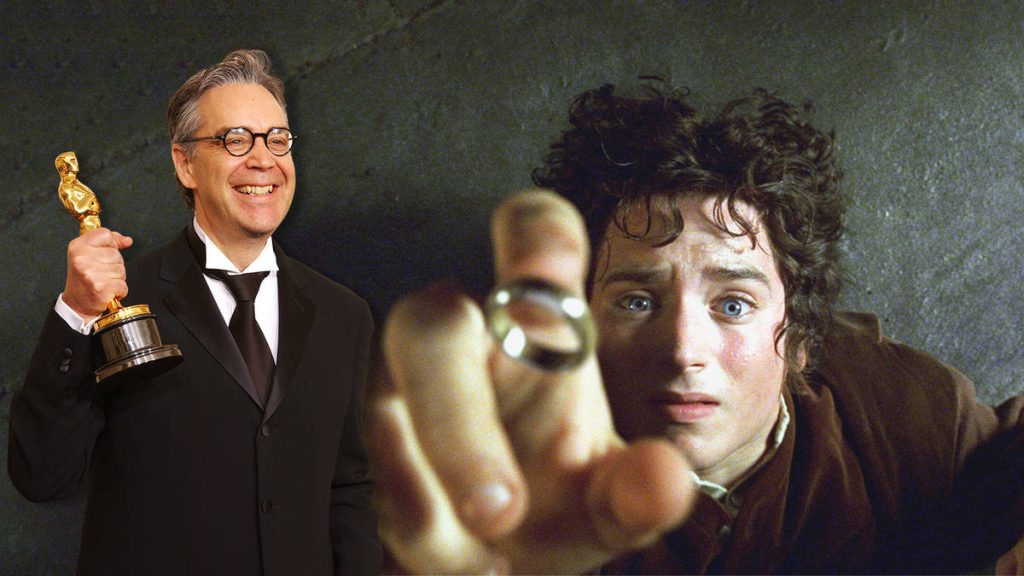 The easiest stunt to pull off when requiring readers or viewers to freeze-frame their disbelief is to offer up only a single element that’s not of this world. Lorrie Moore does exactly this in I Am Homeless if This is Not My Home (winner of the 2023 National Book Critics Circle Award) by asking us to accept that her hero’s deceased ex-girlfriend might want to embark on one final post-mortem road trip, bantering like a boss all the way. Everything else (well, almost everything else) is essentially normal, right down to the tarmac, the songs on the radio, and said girlfriend’s steady rate of decay.
The easiest stunt to pull off when requiring readers or viewers to freeze-frame their disbelief is to offer up only a single element that’s not of this world. Lorrie Moore does exactly this in I Am Homeless if This is Not My Home (winner of the 2023 National Book Critics Circle Award) by asking us to accept that her hero’s deceased ex-girlfriend might want to embark on one final post-mortem road trip, bantering like a boss all the way. Everything else (well, almost everything else) is essentially normal, right down to the tarmac, the songs on the radio, and said girlfriend’s steady rate of decay.
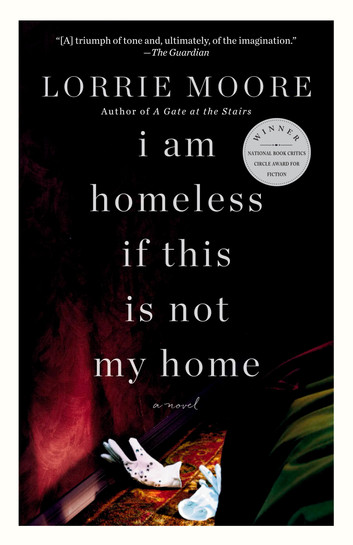 Sometimes, one encounters a writer who appears to be sticking to the world as it is, but elements of dream or otherness are allowed to intrude, often with unpredictable results. The reader is themselves suspended, learning with every new-turned paged to be watchful, wary of what is real and what is not. Kathleen Jennings takes this approach in Flyaway, where disbelief is not so much suspended as it is actively cultivated. John Crowley’s Little, Big proceeds in much the same fashion.
Sometimes, one encounters a writer who appears to be sticking to the world as it is, but elements of dream or otherness are allowed to intrude, often with unpredictable results. The reader is themselves suspended, learning with every new-turned paged to be watchful, wary of what is real and what is not. Kathleen Jennings takes this approach in Flyaway, where disbelief is not so much suspended as it is actively cultivated. John Crowley’s Little, Big proceeds in much the same fashion.
But in general, suspension of disbelief works best in an additive sense. The story-teller allows for some new power, something that piggy-backs on the world already known. For example, in The Fifth Season, N.K. Jemisin allows for “orogenes” who control stone, a supernatural power built on what we already accept of geology and plate tectonics. Similarly, in Marvel Comics lore, the character known as Storm can control wind and weather –– but her powers depend explicitly on phenomena with which we are already familiar.
 Even the finest works of the fantastic have their awkward moments. In HBO’s Game of Thrones, there’s a scene in which the Onion Knight, Ser Davos Seaworth, breaks young Gendry out of prison and sets him in a rowboat. When Gendry faces the wrong way, Ser Davos asks, “Have you ever been in a boat?” and Gendry answers, “No,” but the very next moment, he’s feathering the oars like a pro. All I can do is shake my head. Rowboats require practice: you’re facing the wrong way while steering, and each oar (long and heavy) functions independently. In the ocean, as Gendry is, every single wave impacts the oars differently. I’m forced to say that, as written, this charming, comic scene swan dives right over the cliff of believability. If poor Gendry has never rowed, all the royal blood in the world won’t help him. He’ll never get past the breakers, much less to the supposed safety of some far and distant shore.
Even the finest works of the fantastic have their awkward moments. In HBO’s Game of Thrones, there’s a scene in which the Onion Knight, Ser Davos Seaworth, breaks young Gendry out of prison and sets him in a rowboat. When Gendry faces the wrong way, Ser Davos asks, “Have you ever been in a boat?” and Gendry answers, “No,” but the very next moment, he’s feathering the oars like a pro. All I can do is shake my head. Rowboats require practice: you’re facing the wrong way while steering, and each oar (long and heavy) functions independently. In the ocean, as Gendry is, every single wave impacts the oars differently. I’m forced to say that, as written, this charming, comic scene swan dives right over the cliff of believability. If poor Gendry has never rowed, all the royal blood in the world won’t help him. He’ll never get past the breakers, much less to the supposed safety of some far and distant shore.
And yet, I’m perfectly happy to believe in three-eyed ravens and the faceless men of Bravos.
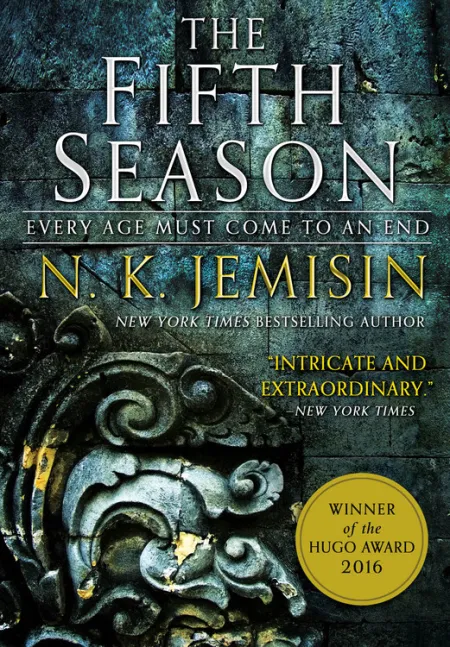 Perhaps the loftiest trick of all in the juggling game of disbelief is to remove some element that we have trouble imagining living without. Gravity, for example. The relative hardness and density of metal. Inertia. Strip away even one those three, and then try writing up a believable sword-fight. Good luck to ya’.
Perhaps the loftiest trick of all in the juggling game of disbelief is to remove some element that we have trouble imagining living without. Gravity, for example. The relative hardness and density of metal. Inertia. Strip away even one those three, and then try writing up a believable sword-fight. Good luck to ya’.
And this, perhaps, is why it is easier, when watching Amazon’s The Wheel of Time, to accept the One Power and way-gates and trollocs than it is to believe in a remote, mountainous outpost where the population covers just about every color of the human rainbow.
Magic, we buy (in part because it’s great fun to do so).
But reality?
Reality bites.
Onward.
Mark Rigney is a writer and long-time Black Gate blogger. His work on this site includes original fiction and perennially popular posts like “Adventures in Spellcraft: Rope Trick.” His new novel, Vinyl Wonderland, dropped on June 25th, 2024. Reviewer Rich Horton said of Vinyl Wonderland, “I was brought to tears, tears I trusted. A lovely work.” His favorite review quote so far comes from Instagram: “Holy crap on a cracker, it’s so good.” A preview post can be found HERE, while his website lives over THERE.
Spotlight on “The Will of the Many” by James Islington
In The Will of the Many, at the elite Catenan Academy, a young fugitive uncovers…
The post Spotlight on “The Will of the Many” by James Islington appeared first on LitStack.
Book Review: The Everlasting by Alex E. Harrow (by Swiff)

Book links: Tor Publishing Group | Goodreads
ABOUT THE AUTHOR: Alix E. Harrow is the Hugo Award winning author of The Ten Thousand Doors of January, The Once and Future Witches, and various short fiction. Her Fractured Fables series, beginning with the novella A Spindle Splintered, has been praised for its refreshing twist on familiar fairy tales. A former academic and adjunct, Harrow lives in Virginia with her husband and their two semi-feral kids.
Publisher: Tor Books (Expected October 2025)
Formats: Audiobook, ebook, paperback
REVIEW: The Everlasting is my favorite of Alix’s stories since the release of The Ten Thousand Doors of January. It is a love story told across a thousand years, again and again. It’s a story of ambition and ruthlessness, of bravery and cowardice, of servitude and freedom. It’s a lovely, emotional, and endearing read, showcasing Harrow’s wit and insightful observations common to her stories.
Told from an alternating second-person narrative (!) that echoes through time (!!), the story brings to mind Ken Grimwood’s classic Replay in all the best ways. Stories of this particular genre seem like they’d be especially difficult to execute, but Harrow does a remarkable job at harvesting all the seeds planted throughout the story.
I’m not going to divulge any further plot details as that would spoil some of the fun. Trust that the book is full of surprises and runs the full gamut of emotions, so prepare yourself for an immersive reading experience.
Sorry for cutting this short, but I have to go. If you need me, I’ll be waiting beneath the yew tree…
COVER REVEAL: God's Junk Drawer by Peter Clines (by Mihir Wanchoo)

Official Author Website
Pre-order God’s Junk Drawer over HERE
Read Fantasy Book Critic’s review of Ex-Heroes
Read Fantasy Book Critic's review of Ex-Patriots
Read Fantasy Book Critic’s review of Ex-Communication
Read Fantasy Book Critic's review of Ex-Purgatory
Read Fantasy Book Critic's review of Ex-Isle
Read Fantasy Book Critic's review of The Junkie Quatrain
Read Fantasy Book Critic's review of 14
Read Fantasy Book Critic's review of The FoldRead Fantasy Book Critic’s review of The Broken Room
Read Fantasy Book Critic Interview with Peter Clines
Read Fantasy Book Critic’s second interview with Peter Clines
Read I See Dead People by Peter Clines (Guest Post)
We are big fans of Peter Clines at Fantasy Book Critic and it's been a while since we have gotten to read some of Pete's fabulously twisted tales. So it is with great pleasure that we got news of the cover for God's Junk Drawer.
Peter's newest standalone book is being released by Blackstone Publishing on Nov. 11th 2025 and here's the snazzy cover for it featuring the talents of James T. Egan (Bookfly design).

Pre-order God’s Junk Drawer over HERE Add God's Junk Drawer on Goodreads
Official Book Blurb: Welcome to the Valley …
Forty years ago, the Gather family—James, his daughter Beau, and his son Billy—vanished during a whitewater rafting trip and were presumed dead.
Five years later, Billy reappeared on the far side of the world, telling an impossible tale of a primordial valley populated by dinosaurs, aliens, Neanderthals, and androids. Little Billy became the punchline of so very many jokes, until he finally faded from the public eye.
Now, a group of graduate astronomy students follow their professor, Noah Barnes, up a mountain for what they believe is a simple stargazing trip. But they’re about to travel a lot farther than they planned …
Noah—the now grown Billy Gather—has finally figured out how to get back to the Valley. Accidentally bringing his students along with him, he’s confident he can get everyone back home, safe and sound.
But the Valley is a puzzle—one it turns out Noah hasn''t figured out—and they’ll need to solve it together if there’s any chance of making it out alive.
Pulling from Earth’s past, future, and beyond, Peter Clines has created a complex, dangerous world, navigated by a dynamic ensemble cast, and a story that is thrilling as it is funny and heartfelt.
Can Your Hear Me Now?

This post is all about audio.
Maggie Audio
This Kingdom is getting an audio release, and we are being asked about our input. We R Excite!
If you have a favorite narrator who is suitable to voice a 25 year old woman and does great male voices, lay your suggestions on us in the comment section. We are looking for a new to us narrator, so not someone who has voiced a lot of our work.
Inheritance Audio
The Inheritance Audio is in the works. We are right now looking at a split narration for Ada and Elias. This adds additional hoops for us. Because of the scheduling issues, the ebook and print copy of The Inheritance will likely come out a lot earlier than the audio. It’s hard to book narrators on shorty notice. But have no fear, the audio will be released.
AI Audio
On May 13th, The Guardian published an article regarding Audible use of Ai voices.
“We are bringing new audiobooks to life through our own fully integrated, end-to-end AI production technology,” reads the announcement on Audible’s website. There are two options for publishers wishing to make use of the technology: “Audible-managed” production, or “self-service” whereby publishers produce their own audiobooks with the help of Audible’s AI technology.
Both options will allow publishers to choose from more than 100 AI-generated voices across English, Spanish, French and Italian to narrate their books. AI translation of audiobooks is expected to be available later in the year.
We will not be picking up that option. All of our narrators are human. This is why it takes so long for audio to come out sometimes.
Rogan POV audio
We are aware that Rogan POV didn’t make it into GA edition. No worries, we are working on it and hopefully you will be getting the extras with the next couple of releases.
The post Can Your Hear Me Now? first appeared on ILONA ANDREWS.
Multiverse 8 Snippet 3
Sitrep: Starting to ramp up on writing Shelby 10.
This snippet is from the story The Tour, a Federation story:
Normal 0 false false false EN-US X-NONE X-NONE MicrosoftInternetExplorer4 /* Style Definitions */ table.MsoNormalTable {mso-style-name:"Table Normal"; mso-tstyle-rowband-size:0; mso-tstyle-colband-size:0; mso-style-noshow:yes; mso-style-priority:99; mso-style-qformat:yes; mso-style-parent:""; mso-padding-alt:0in 5.4pt 0in 5.4pt; mso-para-margin:0in; mso-para-margin-bottom:.0001pt; mso-pagination:widow-orphan; font-size:11.0pt; font-family:"Calibri","sans-serif"; mso-ascii-font-family:Calibri; mso-ascii-theme-font:minor-latin; mso-fareast-font-family:"Times New Roman"; mso-fareast-theme-font:minor-fareast; mso-hansi-font-family:Calibri; mso-hansi-theme-font:minor-latin; mso-bidi-font-family:"Times New Roman"; mso-bidi-theme-font:minor-bidi;}
Agnosta
Chief Warrant Officer 2 Nohar Yellow Tiger Rajestan was nervous but did his best to fight the jitters down. He’s been in stasis pods before; this would be no different.
He just didn’t like confined spaces. The pod was bad. But the coffin was a temporary evil; it meant he’d be asleep for the journey ahead.
He still wasn’t certain what possessed him to take on the journey. Orders obviously, though with his rank he could have gotten out of them had he wished. General Anhueser’s personal request and reminder that it could help him with his ongoing fear of travel too. His therapist Maddy had also been on that wagon.
He glanced at the nurse. She looked impatient.
“I’m going,” he muttered.
She indicated the pod.
“Okay, okay,” he muttered as he climbed in.
“It’s like taking a nap, sir.”
“I’m a warrant. Don’t call me sir.”
“Sorry, Warrant … ah, Chief Warrant Officer … um …”
“Chief is fine. Not that we’ll know each other long,” he growled. The nurse smiled and began to hook him up. A jack was attached to his implants to plug him in and monitor his vital signs. Additional sensors were attached for backup purposes.
“Can you leave the door open until I’m asleep?”
“That’s against protocol,” the nurse said with a frown. A doctor out of his range of view cleared his throat. She looked up. “… But I guess so, Chief.”
“I know; I sound like a kid,” the cat muttered, ears back. His fur was up. He knew he was anxious.
“Just try to relax, sir. The drugs can’t take hold until you relax,” the nurse said, voice dropping into a calming lilt.
He growled something but she kept moving. He could smell her since she was so close. Humans tended to like perfume and this one liked jasmine. It was a bit cloying, clogging his nostrils. He fought the urge to sneeze.
“Just close your eyes and picture a nice sunny day. Taking a nap in a hammock on a porch maybe …”
He let his eyes droop and then close.
“That’s good. Now, I’m attaching a Somnetic Delta Wave Inducer,” the nurse said. “It will help you fall asleep.”
Nohar grimaced but didn’t reject that. He had used the device a few times when anxiety had gotten the better of him and he’d needed to sleep. It was better and safer than drinking himself to sleep to avoid the nightmares. He felt the device being placed on his forehead. After a moment, there was a slight click sound and then he started to feel lethargic.
He heard the nurse say something in an approving voice and then nothing more.
---#---
Major General Pasha 101001 looked out the window as the shuttle continued to climb to orbit. As missions went, this one was better than most. It was also long overdue. He just wasn’t certain about it.
He had pitched the idea of an inspection tour to the Admiralty several years ago. He had thought it had been forgotten until a decision on high had come up. He’d been a bit wistful about seeing home again and had hinted about taking an assignment there or retiring. Apparently, that had made certain parties volunteer him for the mission.
His basic inspection tour had been bloated. The navy had provided one of their super fast couriers but they’d tagged their own IG inspector onto the mission. He’d been fine with that until the Marines had coughed up two of their own IG officers.
His staff had been pared down from seven to five including his AI Jack. One of his staff was First Lieutenant Angie Samara from the army AG office too, replacing his adjunct. That had been irritating. Not that he really needed someone to hold his bag.
Officers from Inspector General’s office from any branch of government were generally not well received. They were very much into nitpicking down to spot-checking the number of nuts and bolts in containers.
Pasha thought of his mission as showing the flag, going around and showing off to the public as well as the military personnel that the military did care about the individual bases and so on.
Of course before each arrival and supposed colonoscopy, the commanders of the AO would be busy scrambling to get everything neat and tidy. The rank and file might complain about such antics but it served a purpose. Well, correction, several purposes, Pasha thought. One was to put everyone on notice that they were checking in and cared about getting shit right. The second concept tied into the first; it was that if they were going to try something stupid, think twice, big brother was watching.
The third they all knew about already was for publicity and morale. The troops felt better when they knew that the bosses actually cared about them and their welfare. Listening to some of the troops and seeing them show off their skills was also important.
The senate Military Affairs Committee had gotten wind of the mission and sent their own representative from the senate IG office. He had yet to meet her.
He’d put his foot down at any additional people when he’d heard the mutterings about other government departments wanting to tag their own people in. The last thing he needed was a love boat with a couple dozen petty bureaucrats. Besides, the little courier could only handle eight passengers. Going with more people would have meant a bigger ship, which would have been slower and would have defeated the purpose of doing it fast.
Fast hell, he thought as the shuttle’s main engines cut off and they drifted to the station in orbit of the moon. He’d be lucky if the mission was completed in four years. He was expecting delays that would run them to five easy he mused darkly. He glanced over to his crew. They were all looking out the windows. He snorted to himself and then closed his eyes and pretended to sleep. Better to meditate than get drawn into some last-minute paperwork or some such nonsense.
---#---
The Lost World
You may have heard about the recent statements made by Netflix CEO Ted Sarandos, a man who combines all the best qualities of Dr. Jack Kevorkian and Alaric the Goth in one natty package. As reported by Variety on April 28th, the streaming mogul declared that the precipitous decline in in-person movie attendance which began several years ago and has reached near-catastrophic proportions in the years following COVID is easily understandable; indeed, it communicates a clear message:
What does that say? What is the consumer trying to tell us? That they’d like to watch movies at home, thank you. The studios and the theaters are duking it out over trying to preserve this 45-day window that is completely out of step with the consumer experience of just loving a movie.
Relegating the theater experience that has defined the industry (to say nothing of wider American culture) for the past nine decades to the dustbin of history, Sarandos shined a dazzling light on our murky cultural landscape:
Folks grew up thinking, I want to make movies on a gigantic screen and have strangers watch them and to have them play in the theater for two months and people cry and sold-out shows… It’s an outdated concept.
Thank you, Ted, for clearing that up for us. I’m sure Scorsese and Coppola and Lee and Tarantino and Bigelow are happy to have the benefit of your sage counsel.
Lustily chomping his cigar and aggressively pounding his fist on the table (okay, I made that part up), the Netflix boss further said that the decline of movie theaters doesn’t “bother” him. He would be bothered, he added, if “people stop making great movies.”
Now I’ve seen the typical Netflix product, and you’ll forgive me if I think that Mr. Sarandos wouldn’t know a great movie if Bette Davis walked up with one in a steel film can and broke his nose with it.
 Fasten your seat belt, Ted — it’s going to be a bumpy night!
Fasten your seat belt, Ted — it’s going to be a bumpy night!
If you sense a certain bitterness in my remarks, you’re right, and that sourness stems less from my distaste for Mr. Sarandos and his cavalier attitude towards something that I love than from my suspicion that he’s right, damn it. Much as I might regret it, it does appear that the kind of moviegoing experience that many of us have taken for granted for our entire lives is rapidly — and probably irrecoverably — becoming a thing of the past.
Some hard-hearted realists might say that mourning the decline of moviegoing (as in actually going to the movies) is as silly, pointless, and socially and economically regressive as bemoaning the fact that the buggy-whip industry isn’t what it used to be.
As a practical matter, that might be so, but I still feel entitled to mourn the loss. Why?
To be moved, whether you are frightened or thrilled, brought to tears or to laughter, is an experience that you can certainly have in your living room, alone or with one or two other people, but that’s a fundamentally different experience than feeling those same emotions in a room filled with many other people, in a place dedicated (I almost said consecrated) to undistractedly watching the movie and nothing else, a unique space where no one (ideally) is chatting, looking at their phone, constantly moving around the room, or pausing the action while they stroll to the bathroom or go to the door to get the Grubhub order.
The darkness, the size of the space and the close physical proximity of so many other people, the scale of the screen and the depth of the sound, the sustained, even relentless nature of the experience (to say nothing of the fact that because you’re leaving the house to do it, it’s something that actually requires a degree of planning), and yes, the cash outlay — even if the movie itself is a negligible piece of fluff, these factors all combine to make the in-person experience itself larger and more weighty.
Of course, every difference I just mentioned is, for an increasing number of people, a bug and not a feature. In that, Ted Sarandos is right. More and more people do seem to prefer streaming at home over the older way of seeing movies. I know, I know, who has the time anymore? Who has the money? And what about the kids? Anyway, how many movies are good enough to warrant going through all the hassle?
I can’t argue with any of these objections; I feel their force myself. And yet I think we’re going to lose something precious if going to the movies becomes some sort of boutique experience limited to a few large urban areas. Sarandros himself pointed to this as a likely future, saying, “If you’re fortunate enough to live in Manhattan, and you can walk to a multiplex and see a movie, that’s fantastic. Most of the country cannot.” (I don’t know where Ted lives, but apparently he pictures the rest of the country as some sort of vast Hooterville where people wander among the cornstalks, desperate for entertainment.)
The “concept” dismissed as “outdated” by Ted Sarandos has played a major part in my life ever since I can remember. My parents loved movies and “going to the show” was one of my commonest experiences growing up; we literally did it all the time, and I continued to go on my own or with friends as I got older. I have countless memories connected with seeing movies in actual theaters or at the drive-in, and the record of my moviegoing forms a kind of alternate history of my life; it’s probably the same with you. Here are a few of my random moviegoing memories, and they’re all the more powerful because they’re not just mine; they’re collective memories shared in one way or another with the hundreds of people who were with me in the theater at those moments, and with the millions who experienced the same feelings when they saw the same movies in their own hometown theaters.
(You will notice that all of these movies are from the 60’s and 70’s. I have had memorable theater experiences in just about every decade of my life — Dead Ringers, anyone? — but these came to my mind first. Given my topic, it’s probably no surprise that I’m feeling excessively nostalgic right now.)
Summer, 1975. On vacation, visiting my cousins in Texas, we went to see something called Jaws. American movies and culture would never be the same. The shriek of delighted terror and terrified delight that burst from my fourteen-year-old mouth when that corpse’s head popped out of the submerged boat and scared the bejeezus out of Richard Dreyfuss, and me, and all the people surrounding me… well, I didn’t even hear myself, because my ears were too busy ringing from the identical sound that had just come from everyone else.
Quentin Tarantino has said that Jaws is the greatest movie (as opposed to the greatest film) ever made, because it delivers all those quintessential screaming/laughing movie pleasures more perfectly than anything else that’s ever been on the screen. If you were there in 1975, you can only agree with him.
Spring, 1979. My buddy Eddy’s mom said she would take us to the show to see a horror movie. She loved horror movies; she had already taken us to the drive-in to see The Brood and The Corpse Grinders. That’s what I call a great mom. When my mom (also a great mom) heard that Ruth was going, she said that she would join us. I told her that she really didn’t want to do that; the movie we were going to see was called Dawn of the Dead and it was not a Vincent Price campfest, which was what she was expecting from a horror movie. “You don’t understand, Mom — this movie has zombies that eat people!” She tsk-tsked me and insisted on coming along.
Five minutes in, in an apartment building infested with the living dead, a woman spots the shambling corpse of her husband; she runs up to him and embraces him, whereupon he takes a huge bite out of her neck as the blood gushes by the gallon. That woman was no more shocked than my mom, who grabbed her purse, stood up, and walked out of the theater. “I told you!” I shouted as she exited.
Spring, 1968. My mom gave me a day off from school. Why? She was going to drive me into Los Angeles so we could see 2001: A Space Odyssey at the fabled Cinerama Dome. (I told you she was a great mom.) She had told my teacher the day before that it would be “very educational.” The enormous curved Cinerama screen, the eye-popping special effects and overwhelming sound, the rapt enthrallment and utter bafflement of the audience — it has all stayed with me to this day.
As stunned people stood around on the sidewalk afterwards, there was a steady chorus of “What does it mean? Do you know what it means?” “I know what it means!” I recklessly piped up. As all those pairs of adult eyes focused on my seven-year-old self, I realized that I should have kept my big mouth shut. I didn’t know what the movie meant; I only knew that I had just had one of the greatest days of my life, and that I loved my mom.
Fall, 1979. At the Cinerama Dome again, my friend Sutton and I arrived at the last moment to see one of the first showings of Apocalypse Now, and the only seats left were in the first couple of rows. The Dome’s screen was eighty-six feet wide and thirty-two feet high; from our seats, it was like crouching at the foot of Mont Blanc. When the movie opened with a napalm strike, I felt like every millimeter of my optic nerves were on fire, and during the “Ride of the Valkyries” helicopter strike I crouched in my seat to keep from being eviscerated by a mortar round or decapitated by a helicopter blade, and I knew that everyone else in the theater was doing the same thing, even those who had more rational seats than we did (I told Sutton we should have left home earlier).
Every person in the audience knew that they were seeing something beyond the realm of the normal; we were witnesses to an outrageous, crazily ambitious, magnificent once-in-a-lifetime folly that no one there would ever forget. It was probably my supreme experience at the movies, and it wouldn’t surprise me if a lot of the people who were there that night almost forty-six years ago look back and think about it that way too.
One more. Fall, 1977. The movie is, believe it or not, Race for Your Life, Charlie Brown! This time Sutton and I left in plenty of time to get decent seats, and anyway, we didn’t have to drive as far to get to the theater. (The Cinerama Dome usually didn’t book Charlie Brown movies.) We had a Saturday with nothing to do and the only thing showing was this Peanuts movie. Well, why not? The theater was full to overflowing with kids — I didn’t see an adult in sight. We two high-school boys were apparently the oldest people present. Clearly this mediocre cartoon was a golden opportunity for parents to dump their spawn for a couple of hours and have a little time for… well, other stuff.
Things held fairly steady until the lights went down, and then pandemonium reigned. You’ve read Lord of the Flies? It was like that. The air was instantly full of flying popcorn boxes and other trash, and the soundtrack was drowned out by an insane cacophony of laughs, shrieks, yells, catcalls, arguments, profanities. You couldn’t see the movie; you couldn’t hear the movie. The aisles were filled with kids running up and down, falling, rolling, jumping, kicking, crashing. One kid sitting several rows forward took umbrage at something the urchin sitting directly in front of us said or did and came flying from his seat, and jumping astride the offender, pinned him in place and started whaling on him as the surrounding kids cheered; it was like having a ringside seat at Ali-Foreman. We were too stunned to intervene (others quickly did), and we bolted for freedom as soon as the final credits rolled, happy to escape with our lives, but I have never forgotten that kiddie matinee; it permanently darkened my view of human nature and blighted my belief in the possibility of building anything lastingly good in this world. And all it cost me was, what? Two bucks and a little gas money? Now that’s what I call a bargain.
Beat that, Ted Sarandos.
Thomas Parker is a native Southern Californian and a lifelong science fiction, fantasy, and mystery fan. When not corrupting the next generation as a fourth grade teacher, he collects Roger Corman movies, Silver Age comic books, Ace doubles, and despairing looks from his wife. His last article for us was Writ in Water: V.E. Schwab’s The Invisible Life of Addie LaRue
7 Author Shoutouts | Authors We Love To Recommend
Here are 7 Author Shoutouts for this week. Find your favorite author or discover an…
The post 7 Author Shoutouts | Authors We Love To Recommend appeared first on LitStack.
Get it While You Can: Manly Wade Wellman’s Cahena Going Out of Print


Cahena by Manly Wade Wellman (DMR Books, November 1, 2020). Cover by Lauren Gornik
I’m hearing reports that Manly Wade Wellman’s final novel Cahena, out of print for nearly 35 years until DMR released a handsome new edition in 2020 with a striking cover by Lauren Gornik, is on the verge of going out of print again.
Cahena is an overlooked gem in Wellman’s distinguished catalog. A historical novel with fantasy elements, it tells the tale of the legendary Berber queen who lived in the 7th Century in North Africa, and led her people against the Romans and later Muslim invaders. The Cahena, as she was known, was said to be both a sorceress and prophetess, and she led an army forty thousand strong in a valiant struggle to save her beleaguered people.
DMR’s rights to the book expire this month, and at the end of May it will not longer be available. Morgan Holmes says that with this final novel, “Wellman went out on top.” If you’re a Wellman fan, or a fan of quality adventure fiction, grab a copy while you can. Don’t wait another thirty-five years for the next reprint! Order directly from DMR Books here.
The Wycherleys (by Annaliese Avery)
Young Adult Fantasy / Romantasy
At the age of 17 Aurelia should be entering magical society and finding a match, but 150 years earlier her Mathilde Wycherley was cursed and since then the curse has travelled down through the generations…and it has landed on Aurelia. She is a pariah, not a single witch will join with her and without a “tether” her magic will fade away.
Jules Nightly is a descendent of the witch who cursed Mathilde but desperate times call for desperate measures and in an effort to hold onto her magic without a tether Aurelia enters into a forbidden bargain with him.
––––––––––––––––––––––––––––––––––––––––––––––––––––––––––––––––––––––––––––––
Fans of Morrigan Crow (The Tales of Morrigan Crow) or Leovander Loveage (Sorcery & Small Magics) will love this book. I hesitate to say this but it’s another book for the Harry Potter refugees. If you need a little magic in your life, this is your book.

Multiverse 8 Snippet 2
Sitrep: Some minor changes to the Bast cover. I'll get on that project probably tomorrow.
On to the snippet!
Normal 0 false false false EN-US X-NONE X-NONE MicrosoftInternetExplorer4 /* Style Definitions */ table.MsoNormalTable {mso-style-name:"Table Normal"; mso-tstyle-rowband-size:0; mso-tstyle-colband-size:0; mso-style-noshow:yes; mso-style-priority:99; mso-style-qformat:yes; mso-style-parent:""; mso-padding-alt:0in 5.4pt 0in 5.4pt; mso-para-margin:0in; mso-para-margin-bottom:.0001pt; mso-pagination:widow-orphan; font-size:10.0pt; font-family:"Times New Roman","serif";}
Time ZoneRita Geffen was having a normal day or thought she was. She came out of her building and put her ear buds in. She headed to her scooter to head to work but then stopped when she noticed everything was frozen.
She smiled, thinking it was some sort of flash prank. She’d heard about them played years ago. She thought of the people as mannequins or like a mime. But when she went over to touch a woman walking midstride, the woman didn’t react.
Even her dress was fluttering and the wind was blowing her hair. It remained out like that.
She looked around and saw a plane in the sky, just frozen in the air. Off to her right, she saw a distant helicopter. Again, just frozen. She spun in place and saw other things just frozen there. A flock of pigeons were nearby; one was pooping on someone. She could see the poop just hovering in the air.
“What the hell is going on?!?” she demanded loudly.
~~~~~~
Rashid Bashar had been working in the tunnels underground. His phone had no signal and of course no internet. When he came out to check on things, he found that the phone was still losing battery power faster than it should. It kept trying to find a signal. He had to put it on plane mode to keep it from draining the battery. He was confused about it until he looked around and saw the bustling market frozen in place.
“Allah …?” he asked in disbelief, eyes wide in surprise. It was near dusk and everything was just frozen. He didn’t understand. Nothing made sense.
~~~~~~
There was an eerie silence; it was so quiet it was scary. Like the calm before a storm, like when all of the insects went silent just before something happened. There was no sounds of birds, no insects, no machinery, no people talking, nothing at all. Darren Monroe realized how much you just tuned out all of the ambient noise until it was gone.
“God, this is freaky,” he muttered.
He hadn’t understood what was going on. He still didn’t. It was 9 am and just … stuck. The sun didn’t move, the people didn’t, nothing did except him. He’d tried to take a nap and hoped it was just a bad dream, but when he opened his eyes, the world was still frozen. Even Max, his old buddy, was frozen in his dog bed licking his privates. The scene made him snort. Someone should make a sculpture of it or some such, he thought.
He pulled out a generator and plugged in an old radio from the back of his closet. But of course it didn’t work. He finally got a clue and tried his old CD collection. Those worked thankfully.
He didn’t have many; he’d inherited them from his uncle and just stuck them in a box because his mother had insisted that they’d be valuable some day. Now he was glad he’d kept them. The same for the DVDs.
Just hearing sound again helped him feel a little better. The situation was freaky, and he didn’t understand what the hell was going on but hearing the Top Gun album helped him somehow.
~~~~~~
Sergeant Ezra Falk of the Israeli army made his way through the apartment and saw everything and everyone just stuck in place, frozen in time. When he got outside, he looked around to see birds, planes, cars, people, all things that had once been in motion were just frozen still. Things that were falling were just stuck.
“Hello? Anyone in there?” Ezra asked as he waved a hand in front of the woman’s frozen face.
“Freaky, it’s like no one is breathing … and who the hell am I talking to again? You can’t hear me!” He turned around and looked to see everyone and everything just stuck in time.
“Does anyone know what the hell is going on?” he demanded.
There was just silence. No sounds of anything at all.
“This has got to be the weirdest damn dream I’ve ever had,” he muttered as he stormed back inside.
~~~~~~
Tammi Cabot started to make some headway on what was going on. It didn’t make sense but some rules were starting to become apparent to her.
Like that other people were frozen but if she got close to something, it began to move. The first time that happened it had startled her. She hadn’t expected it. But then it froze again.
She pictured a bubble around her, some sort of field that was allowing stuff to move.
She tried various ways to interact with stuff and then people. It didn’t work with the people though, at least not the same as the inert items. She wasn’t certain as to why.
One thing she did find was that once the item moved out of whatever bubble was around her it just stopped again.
She tried tracing a paper airplane she made, moving along with it. That was fun.
“Either this is a dream or God is nuts,” she muttered as she wandered around to see the sights and take pictures. She might as well make the best of the situation.
~~~~~~
Debbi Jordan was hysterical as she looked around at all the frozen people and things. She thought that she was dead. “I’m in hell? This is hell?” she cried going through some hysterics until she began to hiccup. She finally hit the bottle and got drunk. She eventually passed out and never woke up again.
~~~~~~
Darren made a hell of a mess while eating a tub of ice cream and watching a DVD. He thought of a scene and snorted and then snickered. It reminded him so much of the first Home Alone movie. “Hey, I’m eating junk and watching smut, Someone better stop me!” he caroled loudly. As expected no one answered.
He started to get headache and thought it was eye strain. He shut off the DVD and got up to pee. As he walked down the hallway, he started to feel a little better.
In the bathroom, he peed and then hit the lever to flush the tank. Water actually went down but the tank didn’t refill. He played with the lever and then took the tank top off and fiddled with the innards, totally confused as to why it wasn’t filling.
He finally gave up after a moment and decided to deal with it later.
He opened the medicine cabinet and took an aspirin for the headache and then downed some water to wash it down and then went to eat.
~~~~~~
Lance Stewart made his way home and moaned when he saw his wife frozen. He studied her for a long moment and then gently touched her. The whole world was frozen; he didn’t know why. But he didn’t want to be alone.
~~~~~~
Tammi Cabot continued to record her video diary. She took tons of photos and video of people frozen in the air. She then dictated her thoughts, unsure why, or who would see it.
She spent a lot of time video recording strange stuff. It was amusing, and she started to look for the truly bazaar stuff.
~~~~~~
Darren went to sleep on his bed with his phone on his chest hoping it was all one bad dream. The alarm on the phone went off sometime later; He checked it hoping it was a call. He instead saw that it was a carbon monoxide detector. He was confused and rolled to the side feeling a bit disoriented.
It was still broad daylight outside. That confused him until he remembered the world being frozen. But that was a distant unimportant thing. He looked at the phone in his hand once more.
He’d set that app up at his mother’s nagging. He didn’t understand why it went off. His head hurt more and he was tired. He was very sleepy; however, it was a pain in the ass to sleep with it being broad daylight out.
He wasn’t going to go to sleep at all with his bladder full he realized. Well, it was time to do something about that he thought blearily.
He got up and coughed, and then he had to hold out a hand to steady himself to get down the hallway to the bathroom. Again, he noted that it was still daylight out. He held the phone in his free hand and wondered why he felt like he was hung over.
When he got to the bathroom, he looked out the window and saw that yes, everything was indeed still frozen still. He let out a long suffering sigh.
He unloaded his bladder again but this time he had nothing to flush tank when he hit the chrome lever. He grimaced in realization of that problem as the smell of his own urine wafted up to his nostrils. “Gonna have to plunge that or something,” he muttered as he got into the medicine cabinet and got another aspirin. He fumbled the bottle and lid but finally got one out. Of course several spilled on the counter, down the drain, and on the floor.
He didn’t care at the moment. He just wanted the pain to go away.
He popped the pill in and then took a swig of water from a bottle he kept on the counter. He used to have a cup for tap water but the damn ants had been all over it and groused him out. He leaned against the wall and wondered what the hell was wrong with him now.
~~~~~~
Name That Street
Before anything else: MAGIC TRIUMPHS is out from Graphic Audio today. Yay!
Gordon’s surgery went well. We got home safe yesterday and today he is in the home gym, working the shoulder as the doctor instructed. The doctor was pleased and saw no additional need to do anything beyond the expected scope of the surgery. Gordon was very put out yesterday because they did a nerve block and he couldn’t move the arm.
The first thing my husband did when I pulled into the garage is squint at the trashcans on the curb, left there since Monday was the trash day. I told him that I would take care of the trashcans, so I got out and headed for the recycling bin. I pulled it back behind the wall and here is my husband dragging the other trashcan back.
I made him coffee and bought yummy Krispy Creme doughnuts and got him a strawberry shake because his throat hurt. He did things like pick up the dog and pick up packages. Apparently, “a man has to do things” instead of sitting on the couch resting his arm in a sling like he is supposed to.
I stressed out a lot about the surgery. We came in at 7:00 am, as instructed, at 9:45 am they took him away, and I went into the waiting room, where the patients were represented by numbers on the screen. Each number had a color code that informed you what stage of the surgery the patient was at. It was supposed to be a short surgery. When I got there, his name had a green code meaning that he was in surgery. 10, 11, 11:30… Then I get a text. Surgery is starting. By 1:00 pm I was kind of a basket case and I bought some yarn I shouldn’t have bought in a moment of stress. I need to block Wendy’s Wonders.
Anyway, we are home and it’s back to the writing. And admin. So much admin.
I have a fun challenge for you. This is a rough sketch of an actual intersection in a major US city courtesy of Candice Slater. Some creative liberties were taken with the height of the building, but other than that, it is right out of Google Maps. It’s an interesting intersection, because there is a pancake restaurant in that red building on the left and an IHOP over there under the blue roof.
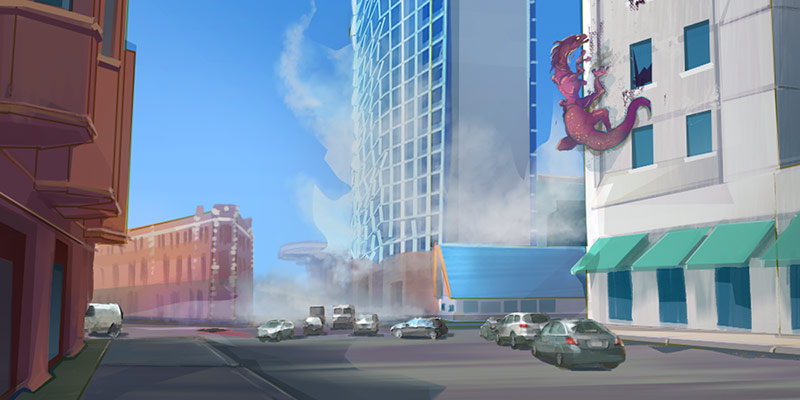
There are some clues in The Inheritance as the the general location. More clues will be give in the upcoming installment. The first person to recognize this intersection and name the cross street will get a character named after them in The Inheritance. The character maybe a hero or a villain. Comments on the blog only, please. Have fun!
Edit Mod R: Winners have found the answer, in approximately 15 seconds! Congratulations, JoAnne and Anton, sharing the prize! The Horde is unmatched, Interpol should either hire us or watch us, not sure hehe.
The post Name That Street first appeared on ILONA ANDREWS.
The Writer and the Boycott
 Image by Niek Verlaan from Pixabay
Image by Niek Verlaan from Pixabay
Good afterevenmorn!
Well, I’m talking boycotts again, as there is a lot of it going around. And they are absolutely kicking up all kinds of dust. This is great – making your voice heard with the only thing these companies seem to understand; their bottom lines. It’s not so great if you’re an innocent writer just trying to make a living who happens to be caught in the crossfire.
Some few writers like myself are trying to divest from unethical companies (I’m not going to name them, but we all know, right?). But we are quite few, and it’s only, at least in my case, quite a light boycott. My books are still available on sites I’d rather no be on, as I want to offer something for those readers who have no choice but to use that site. That’s the unfortunate thing a near monopolies like this. Some folks have no other option. I do have my books available in other places, too, and encourage folks to buy there instead if they can.
It is an unfortunate truth that writers are largely stuck with these behemoth companies. Many self-published or small press authors make (or made) quite a decent living selling through these companies, sometimes exclusively. Good for them, honestly. That’s great! Less great now, however. Buyers, you see, are also boycotting these large companies. And that spells trouble for writers.
 Image by Лариса Мозговая from Pixabay
Image by Лариса Мозговая from Pixabay
I’ve seen more than one post on social media of writers reminding readers that these big companies don’t really feel their absence, but we writers absolutely do. And they’re not wrong. When people stop buying books from one of the largest sellers of books, the folks who depend on that site to sell feel it first and hardest.
It’s not a an easy spot to be in. I’m incredibly proud of everyone who are now putting their feet down and refusing to give money to sites, and the people behind these sites who are actively making the world a harder place to be in. I’m also feeling for those who were making their livings by selling on the very sites that people are actively avoiding. It’s a tough situation all around.
 Image by PDPics from Pixabay
Image by PDPics from Pixabay
Before we go on, I do want to make a giant caveat to what I’m about to say next. I don’t make a living selling books on these sites. I don’t make a living selling books period. I’m a terrible marketer, and perhaps a mediocre writer, so I don’t make a living selling books. I’d really like to, and perhaps one day I’ll get there, but I do not currently. I work full time and am scraping by without having to rely on book sales. Everything I say here will probably feel hollow for those who are currently suffering for those who are caught in this fight.
With that said, I remain firmly on the side of the boycotters. I am also boycotting as much as I can. Book purchases are now made at the bookstore nearest me. It’s not always convenient, but a half hour walk to the shop is something that I’m willing to do in order to avoid using these sites. I don’t think readers should be guilted into abandoning their causes. I do think it’s up to us as writers to try and adapt to the changing landscape. There are a couple of ways to do this. Probably more, but if I do more than two, I’ll be writing this forever.
 Do not put all your eggs in one basket.
Do not put all your eggs in one basket.Image by Gerald Friedrich from Pixabay
The most important thing I think writers can do currently is diversify
Some sites have huge incentives for exclusivity. Make them the only site your book can be purchases or read from, and you get a bigger cut of the profits. It can be incredibly enticing. If possibly, avoid that temptation and put your books up on multiple sites – including your own. There are a lot of ways to create an online shop and start selling direct. It does require a lot more marketing work, as discoverability is a huge issue here.
But I do know book shoppers often are exposed to the marketing of these big sites, and then go hunting to see if the author is selling direct. This is especially since folks are being much more selective about where they source their goods and with whom they spend their money.
There is a further downside, and that is how bestsellers are counted. Personal sales don’t usually count towards the numbers. But if you care more about earning a living than making lists, then it’s not that much of an issue.
Plus there are other bookselling sites where you can sell, and those numbers will count.

Another thing to consider is a subscription model. This isn’t instead of diversifying, but in addition to. For those who are unaware of what this model means, essentially, that people will pay a small amount monthly in exchange for some exclusive content. There are quite a few companies that offer this service (for a cut, of course). The two big ones that I’m aware of are Patreon and Ko-Fi.
For both of these sites, you can set the monthly amount, and even charge different amounts for increasingly awesome exclusive stuff. This tiered subscription can be set to whatever amounts you wish. I know some folks who have subscription tiers at $20.00 a month or more. If you like, you can limit the number of those subscriptions, so you’re not spending all your time trying to fulfill your subscription obligations instead of writing. So perhaps you have a tier at $50.00, in which you provide a monthly handwritten letter, and an automatic awesome loot box with every book release a month, but only two slots for that tier. So you don’t end up spending a tonne of money and time getting those book boxes together and writing letters. The great thing about this is that you can structure it whatever way you want.
I have a Ko-Fi page (obligatory link here. That felt icky. Let’s move swiftly on). I chose it because they also offer an online shop, which has the option of selling to the general public or to one or more of your subscription tiers exclusively, and even an option to accept commissions if you want.
I am very limited on time and ability, as I work full time, so I know I don’t have a lot of time to create for my subscribers. For that reason, I’ve set the monthly amount very low ($1.00), and have only one tier. Subscribers get exclusive blog posts. They will be the only ones able to purchase the special editions of my books, when I get the time to create them (a special edition of The Dying God & Other Stories is currently in the works, with a subscriber exclusive cover and five all new full-colour illustrations). They also have first read of any of the serials I write. They were the first to read The New Haven Incident, and will be the first to read The Bear when I’ve finished writing it. They also get free recipes when I make something I feel is worth sharing. And I’m aiming to offer them free calendar print-outs with original artwork each year. It’s not much, because I cannot yet abandon the office job. Perhaps one day I will be able to, and I can start offering more to my subscribers.
I really like the functionality of Ko-Fi, and now use it as my shop, saving me the costs of hosting my own on my website. Other people choose Patreon because it has other features they find more convenient. I am a fan of being able to set a post as exclusive for a time period of your choosing before it becomes public. You have to do that manually on Ko-Fi.
 Image by christian schwartz from Pixabay
Image by christian schwartz from Pixabay
This isn’t to say that doing either of these things will go well for a writer. I am evidence of that. I don’t sell many books, and I don’t have many subscribers. Fortunate, then, I have full-time work, or I’d be in real trouble. I know that not everyone is fortunate enough to be in that position.
It’s a difficult journey, this writing thing, and should not be embarked on lightly. Boycotts are not making it any easier. We must muddle through as best we can in the weird, unstable world we find ourselves in. The important thing is not to give up. We need stories, perhaps now more than ever. So keep trying to find your way through. I’m here cheering you on. We can do it.
When S.M. Carrière isn’t brutally killing your favorite characters, she spends her time teaching martial arts, live streaming video games, and cuddling her cat. In other words, she spends her time teaching others to kill, streaming her digital kills, and a cuddling furry murderer. Her most recent titles include Daughters of Britain, Skylark and Human. Her serial The New Haven Incident is free and goes up every Friday on her blog.
Book review: Esperance by Adam Oyebanji

Book links: Amazon, Goodreads
ABOUT THE AUTHOR: Adam Oyebanji was born in Coatbridge, in the West of Scotland, and is now in Edinburgh, by way of Birmingham, London, Lagos, Nigeria, Chicago, Pittsburgh and New York. After graduating from Birmingham University and Harvard Law School, he worked as a barrister, before moving to New York to work in counter-terrorist financing in Wall Street, helping to choke off the money supply that builds weapons of mass destruction, narcotics empires and human trafficking networks. His first novel, Braking Day, was a finalist for the Canopus Award.
Publisher: DAW (May 20, 2025) Length: 432 pages (Kindle edition) Formats: Audiobook, ebook, paperback
Esperance hooked me from page one and didn’t let go. I mean, how could it? It opens with an impossible murder - a father and son drown in seawater inside their 20th-floor Chicago apartment (with no water tank around, floors dry, and nail scratches on the ceiling). A dead barracuda is just lying there next to them. For me, that’s the kind of opening that demands attention, and trust me, Oyebanji knows exactly how to keep it.
All of this somehow ties to a woman in Bristol who dresses and speaks like she walked out of the 1930s Nigeria, has and builds tech that shouldn’t exist, and is on a very specific historical scavenger hunt. Yeah, I’m in.
The pacing is perfect - the short chapters told from two points of view (Detective Ethan Krol and Abi) fly by quickly thanks to the right mix of action, mystery, and those oh-crap moments where everything shifts. The sci-fi elements are there, but Oyebanji doesn’t over-explain them, which somehow makes them even cooler. I found the twists top-tier, but your mileage may vary. Anyway, just when I thought I had things figured out, nope. With that said, it’s possible some readers won’t be crazy about police procedural elements, but since I love them, I had no issues here.
I also loved the dynamic between Hollie and Abi. Hollie is basically most of us. Abidemi, on the other hand, is an enigma - charismatic, dangerous, and inhumanly brilliant. Their relationship had the odd but interesting energy, and I loved how their interactions went from trust and suspicion and back.
Even the antagonist had motivations that actually made sense. There’s logic to their actions, even if their methods are, let’s say, a lot.
By the time I hit the final act, I was all in. The twists come fast, the revelations hit hard, and the ending is equally satisfying and unsettling. I feel it’ll stick with me. If you’re into Blake Crouch-style thrillers, Neal Stephenson-esque tech mysteries, or just a smart, fast-paced story that refuses to be predictable, Esperance is absolutely worth your time.
THE MARTIAN CONTINGENCY by Mary Robinette Kowal (Lady Astronaut #4)
Book Review: The Devils by Joe Abercrombie
I received a review copy from the publisher. This does not affect the contents of my review and all opinions are my own.
Mogsy’s Rating: 3.5 of 5 stars
Genre: Fantasy
Series: Book 1 of The Devils
Publisher: Tor Books | Macmillan Audio (May 13, 2025)
Length: 576 pages
Author Information: Website | Twitter
I feel like I read a different book than everyone else. Despite the raving reviews for Joe Abercrombie’s The Devils, I personally walked away with far more fixed feelings than I expected. Don’t get me wrong—there’s plenty to admire in this irreverent dark fantasy adventure, and as a longtime fan of the author, I was happy with the colorful cast of memorable characters and the gloriously brutal action. That said, something didn’t quite click in place for me. As folks tend to say, I liked it, but I didn’t love it.
Set in an alternate version of what feels like medieval Europe, the book opens on a politically tumultuous time. Brother Diaz is a devout yet somewhat sheltered monk who suddenly finds himself appointed to lead the Chapel of Holy Expediency, a secret taskforce comprised of convicted supernatural beings bound to serve the Church whenever their special talents are required. And right now is one of those times. The mission? A young street urchin named Alex, believed to be the long-lost heir to the throne of Troy, must be safely escorted across a war-torn landscape to her rightful place as Empress so she can unite the fractured church before the whole world burns down around them.
The crew of condemned misfits include Jakob, a centuries-old immortal driven by a stoic dedication to the task at hand; Sunny, a mild-mannered elf whose people may be waging a war against the empire, yet manages to remain hopeful in a world that fears her kind; Vigga, a fierce and uninhibited werewolf whose volatile nature makes her both the muscle and the loose cannon on the team; Baron Rikard, an ancient vampire whose taste for decorum never fails to add a touch of civility even as the group storms its way across the continent, leaving chao in their wake; Baptiste, a slick rogue with a jack-of-all-trades skillset, bringing versatility to whatever task needs doing; and Bathazar, a cantankerous necromancer who can get on everyone’s nerves, but whose deep knowledge of all things arcane proves nothing short of invaluable.
Let’s start with what worked for me, because to be fair there was plenty. First, in true Abercrombie fashion, the characters here were all fantastic and delightfully over-the-top, with group dynamics clearly mirroring the key roles in a heist crew. What makes it even better is that each member draws inspiration from classic horror archetypes, which is especially obvious when it comes to characters like Vigga and her impulse control issues, or the very gentlemanly Baron Rikard. Each one also brings something unique to the table, whether it’s magic, brute force, or just pure charm.
However, all this does come with a caveat. For although the Devils are arguably the stars of this show, for me it’s the “normies” Alex and Brother Diaz who form the heart and soul of the novel, because they are the only ones not defined by familiar archetypes or playing to expectations. Like many ensemble cast stories, The Devils prioritizes leveraging group dynamics for the sake of punchy banter and gallows humor, glossing over genuine and meaningful character development. Maybe this is simply Abercrombie trying new things, and I certainly don’t begrudge him for it, but this shift is noticeably different from his earlier works like The First Law trilogy.
I was also slightly underwhelmed with the book’s middle section. While the first few chapters blew me away with a near-perfect introduction into our characters, the conflict, and the quest, this momentum proved unsustainable. The pacing began to lag, making it feel as though the story was treading water as it saved the best it had to offer for climax and conclusion. Granted, character interactions kept things engaging, but there was no longer that sense of urgency or excitement which fueled the opening act. Perhaps what the plot needed was more engaging side quests, but instead it relied too heavily upon snappy dialogue and kinetic action to carry it through to the final stretch. Paradoxically, even though Abercrombie is still the king when it comes to writing tight, brutal, heart pounding and adrenaline pumping battle sequences, the more of them we got, the more the pacing felt largely static.
In the end, The Devils is an entertaining ride, delivering an action-packed fantasy romp with a killer cast of characters and Joe Abercrombie’s signature dark, sardonic wit. It’s undeniably entertaining, and I admire the author’s willingness to cut loose—after all, this is easily the most popcorny book I’ve read from him yet. However, even after the explosive, mayhem-filled finale, I still found myself curiously ambivalent, my feelings tempered by issues like unbalanced pacing and an inability to invest in the story emotionally. Bottom line, this is by no means a bad book, but ultimately, it also wasn’t quite what I thought I was signing up for.
![]()
![]()
New Covers
Sitrep: So, Goodlifeguide is a bit saturated at the moment so no garuntees that we'll see the manuscript back before the upcoming holiday.
In other news, I noticed some blog posts complaining about my covers. So, I spent the week poking around at 8 of them. I tried a few before with mixed results. This time I took a piecemeal approach with many. Some are enhanced with AI some like Regeneration have no AI enhancements, I just shifted the point of view.
To be clear: Same book, just new cover.







 I will be replacing the old covers with these in the coming days.
I will be replacing the old covers with these in the coming days.Free Fiction Monday: Patriotic Gestures
Crime scene investigator Pamela Kinney hears the bad guys outside her house and smells smoke, but only realizes the next morning the crime they committed—burning the flag that had covered her daughter’s casket.
Her police colleagues call it a small crime, but she disagrees. She must solve it, and she must solve it now.
Chosen as one of the best mystery stories of the year, “Patriotic Gestures” explores the fine lines that run through American culture, and sometimes through Americans themselves.
“Patriotic Gestures“ is available for one week on this site. The ebook is available on all retail stores, as well as here.
Patriotic Gestures By Kristine Kathryn Rusch
Pamela Kinney heard the noise in her sleep—giggles, followed by the crunching of leaves. Later, she smelled smoke, faint and acrid, and realized that her neighbors were burning garbage in their fireplace again. She got up long enough to close the window and silently curse them; she hated it when they did illegal burning.
She forgot about it until the next morning. She stepped out her back door into the crisp fall morning, and found charred remains of her flag in the middle of her driveway. There’d been no wind during the night, fortunately, or all the evidence would have been gone.
Instead, there was a pile of burned fabric and a burn stain on the pavement. There were even footprints outlined in leaves.
She noted all of that with a professional’s detachment—she’d eyeballed more than a thousand crime scenes—before the fabric itself caught her attention. Then the pain was sudden and swift, right above her heart, echoing through the breastbone and down her back.
Anyone else would have thought she was having a heart attack. But she wasn’t, and she knew it. She’d had this feeling twice before, first when the officers came to her house and then when the chaplain handed her the folded flag which just a moment before had draped over her daughter’s coffin.
Pamela had clung to that flag like she’d seen so many other military mothers do, and she suspected she had looked as lost as they had. Then, when she stood, that pain ran through her, dropping her back to the chair.
Her sons took her arms, and when she mentioned the pain, they dragged her to the emergency room. She had been late for her own daughter’s wake, her chest sticky with adhesive from the cardiac machines and her hair smelling faintly of disinfectant.
And the feeling came back now, as she stared at the massacre before her. The flag, Jenny’s flag, had been ripped from the front door and burned in her driveway.
Pamela made herself breathe. Then she rubbed that spot above her left breast, felt the pain spread throughout her body, burning her eyes and forming a lump in the back of her throat. But she held the tears back. She wouldn’t give whoever had done this awful thing the satisfaction.
Finally she reached inside her purse for her cell, called Neil—she had trouble thinking of him as the sheriff after all the years she’d known him— and then she protected the scene until he arrived.
***
It only took him five minutes. Halleysburg was still a small town, no matter how many Portlanders sprawled into the community, willing to make the one and a half hour one-way daily commute to the city’s edge. Pamela had told the dispatch to make sure that Neil parked across the street so that any wind from his vehicle wouldn’t move the leaves.
And she had asked for a second scene-of-the-crime kit because she didn’t want to go inside and get hers. She didn’t want to risk losing the crime scene with a moment of inattention.
Neil pulled onto the street. His car was an unwieldy Olds with a souped up engine and a reinforced frame. It could take a lot of punishment, and often did.
As a result, the paint covering the car’s sides was fresh and clean, while the hood, roof and trunk looked like they were covered in dirt.
The sheriff was the same. Neil Karlyn was in his late fifties, balding, with a face that had seen too much sun. But his uniform was always new, always pristine, and never wrinkled. He’d been that way since college, a precise man with precise opinions about a difficult world.
He got out of the Olds and did not reach around back for a scene-of-the-crime kit. Annoyance threaded through her.
“Where’s my kit?” she asked.
“Pam,” he said gently, “it’s a low-level property crime. It’ll never go to trial and you know it.”
“It’s arson with malicious intent,” she snapped. “That’s a felony.”
He sighed and studied her for a moment. He clearly recognized her tone. She’d used it often enough on him when they were students at the University of Oregon. When they were lovers on different sides of the political fence, and constantly on the verge of splitting up.
When they finally did, it had taken years for them to settle into a friendship. But settle they did. They hardly even fought any more.
He went back to the car, opened the back seat and removed the kit she’d requested. She crossed her arms, waiting as he walked toward her. He stopped at the edge of the curb, holding the kit tight against his leg.
“Even if you somehow get the D.A. to agree that this is a cockamamie felony, you know that processing the scene yourself taints the evidence.”
“Why do you care so much?” she asked, hearing an edge in her voice that usually wasn’t there. The challenge, unspoken: It’s my daughter’s flag. It’s like murdering her all over again.
To his credit, Neil didn’t try to soothe her with a platitude.
“It’s the eighth flag this morning,” he said. “It’s not personal, Pam.”
Her chin jutted out. “It is to me.”
Neil looked down, his cheek moving. He was clenching his jaw, trying not to speak.
He didn’t have to.
She understood the irony of the statement. Somewhere in her pile of college paraphernalia was a badly framed newspaper clipping that had once been the front page of the Portland Oregonian. She’d framed the clipping so that a photo dominated, a photo of a much-younger Pamela with long hair and a tie-dye t-shirt, front and center in a group of students, holding an American flag by a stick, watching as it burned.
God, she could still remember how that felt, to hold a flag up so that the wind caught it. How fabric had its own acrid odor, and how frightened she’d been at the desecration, even though she’d been the one to light the flag on fire.
She had been protesting the Vietnam War. It was that photo and the resulting brouhaha it caused, both on campus and in the State of Oregon itself, that had led to the final break-up with Neil.
He couldn’t believe what she had done. Sometimes she couldn’t either. But she felt her country was worth fighting for. So had he. He joined up not two months later.
To his credit, Neil didn’t say anything about her own flag-burning as he handed her the kit. Instead he watched as she took photographs of the scene, scooped up the charred bits of fabric, and made a sketch of the footprint she found in the leaves.
She found another print in the yard, and that one she made a cast of. Then she dusted her front door for prints, trying not to cry as she did so.
“A flag is a flag is a flag,” she used to say.
Until it draped over her daughter’s coffin.
Until it became all she had left.
***
“I called the local VFW, Mom,” her son Stephen said over dinner that night. Stephen was her oldest and had been her support for thirty years, since the day his father walked out, never to return. “They’re bringing another flag.”
She stirred the mashed potatoes into the creamed corn on her plate. The meal had come from KFC: her sons had brought a bucket with her favorite sides, and told her not to argue with them about the fast food meal.
She wasn’t arguing, but she didn’t have much of an appetite.
They sat in the dining room, at the table that had once held four of them. Pamela had slid the fake rose centerpiece in front of Jenny’s place, so she wouldn’t have to think about her daughter.
It wasn’t working.
“Another flag isn’t the same, dumbass,” Travis said. At thirty, he was the youngest, unmarried, still finding himself, a phrase she had come to hate.
The hell of it was, Travis was right. It wasn’t the same. That flag these people had burned, that flag had comforted her. She had clung to it on the worst afternoon of her life, her fingers holding it tight, even at the emergency room, when the doctors wanted to pry it from her hands.
It had taken almost a week for her to let it go. Stephen had come over, Stephen and his pretty wife Elaine and their teenage daughters, Mandy and Liv. They’d brought KFC then, too, and talked about everything but the war.
Until it came time to take the flag away from Pamela.
Stephen had talked to her like she was a five-year-old who wanted to take her blankie to kindergarten. In the end, she’d handed the flag over. He’d been the one to find the old flagpole, the one she’d taken down when she bought the house, and he’d been the one to place the pole in the hanger outside the front door.
“The VFW says they replace flags all the time,” Stephen said to his brother.
“Because some idiot burned one?” Travis asked.
Pamela’s cheeks flushed.
“Because people lose them. Or moths eat them. Or sometimes, they get stolen,” Stephen said.
“But not burned,” Travis persisted.
Pamela swallowed. Travis didn’t remember the newspaper photo, but Stephen probably did. It had hung over the console stereo she had gotten when her mother died, and it had been a teacher—Neil’s first grade teacher? Pamela couldn’t remember—who had seen it at a party and asked if she really wanted her children to see that before they could understand what it meant.
“I don’t want another one,” Pamela said.
“Mom….” Stephen started in his most reasonable voice.
She shook her head. “It’s been a year. I need to move on.”
“You don’t move on from that kind of loss,” Travis said, and she wondered how he knew. He didn’t have children.
Then she looked at him, a large broad-shouldered man with tears in his eyes, and remembered that Jenny had been the one who walked him to school, who bathed him at night, who usually tucked him in. Jenny had done all that because Stephen at thirteen was already working to help his mom make ends meet, and Pamela was working two jobs herself, as well as attending community college to get her degree in forensic science and criminology. A pseudoscience degree, one of her almost-boyfriends had said. But it wasn’t. She used science every day. She needed science like she needed air.
Like she needed to find out who had destroyed her daughter’s flag.
“You don’t move on,” Pamela said.
Her boys watched her. Sometimes she could see the babies they had been in the lines of their mouths and the shape of their eyes. She still marveled at the way they had grown into men, large men who could carry her the way she used to carry them.
“But,” she added, “you don’t have to dwell on it, every moment of every day.”
And yet she was dwelling. She couldn’t stop. She never told her sons or anyone else, not even Neil who had become a closer friend in the year since Jenny had died. Neil, a widower now, a man who understood death the way that Pamela did. Neil, whose grandson had enlisted after 9/11 and had somehow made it back.
She was dwelling and there was only one way to stop. She had to use science to solve this. She couldn’t think about it emotionally. She had to think about it clinically.
She had her evidence and she needed even more.
The next morning, the local paper ran an article on the burnings, and listed the addresses in the police log section. So Pamela visited the other crime scenes with her kit and her camera, identifying herself as an employee of the State Crime Lab.
Since CSI debuted on television, that identification opened doors for her. She didn’t have to tell the other victims that she had been a victim too.
She took pictures of scorch marks on pavement and flag holders wrenched loose of their sockets. She removed flag bits from garbage cans, and studied footprints in the leaf-covered grass to see if they looked similar to the ones on her lawn.
And late that afternoon, as she stepped back to photograph yet another twisted flag holder beside a front door, she saw the glint of a camera hiding in a cobwebby corner of the door frame. The house was a starter, maybe 1200 square feet total. She wouldn’t have expected a camera here.
“Do you have a security system?” she asked the homeowner, a woman Travis’s age who looked like she hadn’t slept in weeks. Her name was Becky something. Pamela hadn’t really heard her last name in the introduction.
“My husband put it up,” Becky said, her voice shaking a little. “I have no idea how it works.”
“When will he be back?” Pamela asked.
Becky shrugged. “When they cancel stop-loss, I guess.”
Pamela felt her breath slide out of her body. “He’s in Iraq?”
Becky nodded. “I put the flag up for him, you know? And I haven’t told him what happened to it. I’ve gotta find someone to fix the holder, and I have to get another flag.”
Pamela looked at the house more closely. It needed paint. The bushes in front were overgrown. There were cobwebs all over the windows, and dry rot on the sills. Obviously the couple had purchased it expecting someone to work on it.
Either the money wasn’t there, or the husband had planned to do the work himself.
“I can fix the holder,” Pamela said. “If you have a few tools.”
“My husband does,” Becky said. “I can show them to you.”
“I have a few things to finish, and then you can show me,” Pamela said.
She dusted for prints, and then, for comparison, took Becky’s and some off the husband’s comb, which hadn’t been touched since he left. Then Pamela went into his workroom, which also hadn’t been touched, and took a hammer, some screws, and a screwdriver.
It took only ten minutes to repair the flag holder. But in that time, she’d made a friend.
“How’d you learn how to do that?” Becky asked.
“Raised three kids alone,” Pamela said. “You realize there’s not much you can’t do, if you just try.”
Becky nodded.
Pamela glanced at the camera. Untended since the husband left. It was probably in the same state of disrepair as the rest of the house.
“Can I see the security system?” she asked.
“It’s not really a system,” Becky said. “Just the cameras, and some motion sensors that’re supposed to alert us when someone’s on the property. But they clearly don’t work any more.”
“Let me see anyway,” Pamela said.
Becky took her past the workroom, into a small closet filled with electronics. The closet was warm from the heat the panels gave off. Lights still blinked.
Pamela stared at it all, then touched the rewind button on the digital recorder. On the television monitor, she watched an image of herself fixing the flag holder.
“It looks like the camera’s still working,” she said. “Mind if I rewind farther?”
“Go ahead.”
Backwards, she watched darkness turn to day. Saw Neil inspect the hanger. Saw Becky crying, then the tears evaporate into a stare of disbelief before she backed off the porch and away from the scene.
Back to the previous night. No porch light. Just images blurred in the darkness. Faces, not quite real, mostly turned away from the camera.
“Got a recordable DVD?” Pamela asked.
“Somewhere.” Becky vanished into the house. Pamela studied the system, hoping that she wouldn’t erase the information as she tried to record it.
She rewound again. Studied the faces, the half turned heads. She saw crew cuts and piercings and hoodies. Slouchy clothes worn by half the young people in Halleysburg.
Nothing to identify them. Nothing to separate them from everyone else in their age group.
Like her, her hair long, her jeans torn, as she stood front and center at the U of O, a burning flag before her.
She made herself study the machine, and figured out how to save the images to the disk’s hard drive so that they wouldn’t be erased. Then she inspected the buttons near the machine’s DVD slot.
“Here,” Becky said, thrusting a packet at her.
DVD-Rs, unopened, dust-covered. Pamela used a fingernail to break the seal, then pulled one out, and inserted it in the slot. She managed to record, but had no way to test. So she made a few more copies, feeling somewhat reassured that she could come back and try to download the images from the hard drive again.
“Will this catch them?” Becky asked while she watched the process.
“I don’t know,” Pamela said. “I hope so.”
“It’s just, they got so close, you know.” Becky’s voice shook. “I didn’t know anyone could get that close.”
It took Pamela a moment to understand what she meant. Becky meant that they had gotten close to the house. Close to her. The burning hadn’t just upset her, it had frightened her, and made her feel vulnerable.
Odd. All it had done to Pamela was make her angry.
“Just lock up at night,” Pamela said after a minute. “Locks deter ninety-percent of all thieves.”
“And the remaining ten percent?”
They get in, Pamela almost said, but thought the better of it.
“They don’t usually come to places like Halleysburg,” she said. “Why would they? We all know each other here.”
Becky nodded, seemingly reassured. Or maybe she just wanted to abandon an uncomfortable topic.
Pamela certainly did. She wanted to play with the images, see what she could find.
She wanted a solid image of the culprits, one that she could bring to Neil.
Maybe then, he would stop complaining that this was a petty property crime. Maybe then he might understand how important this really was.
***
But it was her own words that replayed in her head later that night as she sat in front of her computer.
They don’t usually come to places like Halleysburg…. We all know each other here.
She had lied to make Becky feel better, but the words hadn’t felt like a lie. Thieves really didn’t come here. There was no need. There was richer pickings in Portland or Salem or the nearby bedroom communities.
Besides, it was hard to commit a crime here without someone seeing you.
Except under cover of darkness.
Her home office was quiet. It overlooked the back yard, and she had never installed curtains on the window, preferring the view of the year-round flower garden she had planted. At the moment, her garden was full of browns and oranges, fall plants blooming despite the winter ahead. She had little lights beneath the plants, lights she usually kept off because they spiked her energy bill.
But she had them on now. She would probably have them on for some time to come.
Maybe Becky wasn’t the only one who felt vulnerable.
Pamela put one of the DVDs in her computer, and opened the images. They played, much to her relief, so she copied the images to her hard drive and removed the DVD.
Her computer at home wasn’t as good as her computer at work. But it would have to do.
She didn’t want to do any work on this case at the State Crime Lab if she could help it. The lab was so understaffed and so overworked that it usually took four months to get something tested. When she last checked, more than 600 cases were backlogged, some of them dating back more than nine months.
Those cases were bigger than hers. The backlogs were semen samples from possible rapists and blood droplets from the scene of a multiple murder case.
She couldn’t, in good conscience, bring something personal and private to the lab. She would work here as long as she could. Then if she couldn’t finish here, she might be able to convince herself that the time she took at the lab would go toward an arson case—a serious one, not a petty property crime, as Neil had called it.
Petty property crime.
Funny that they would be on opposite sides of this issue too.
Pamela went through the images frame by frame, looking for clear faces. Her computer didn’t have the face recognition software that one of the computers at the lab had, but she had installed a home version of image sharpening software. She used it to clean out the fuzz and to lighten the darkness, trying to find more than a chin or the corner of an ear.
Finally she got a small face just behind the flag, a serious white face with a frown—of disapproval? She couldn’t tell—and a bit of an elongated chin. Enough to see the wisp of a beard—a boy’s beard, more a wish of a beard than the real thing—and a tattooed hand coming up to catch the flag as the person almost blocking the camera yanked the pole out of the holder.
She blew up the image, softened it, fixed it, and then felt tears prick her eyes.
They don’t usually come to places like Halleysburg.
No. They grew up here. And worked at the grocery store down the street to pay for their football uniforms at the underfunded high school. They collected coins in a can on Sunday afternoons for Boosters, and they smiled when they saw her and respectfully called her Mrs. Kinney and asked, with a little too much interest, how her granddaughters were doing.
“Jeremy Stallings,” she whispered. “What the hell were you thinking?”
And she hoped she knew.
***
Neil wouldn’t let her sit in while he questioned Jeremy Stallings. He was appalled she’d even asked.
“That sort of thing belongs on TV and you know it,” he’d said.
But she also knew he probably wouldn’t do much more than slap the boy on the wrist, so what would be the harm? She hadn’t made that argument, though.
Instead, she waited on the bench chair outside the sheriff’s office conference room, which doubled as an interview room on days like this, and watched the parade of parents and lawyers as they trooped past.
No one acknowledged her. No one so much as looked at her. Not Reg Stallings, whose brother had sold her the house, or his wife June, who had taken over the PTA just before Travis got out of high school. No one mentioned the friendly exchanges at the high school football games or the hellos at the diner behind the movie theater. It was easier to forget all that and pretend they weren’t neighbors than it was to acknowledge what was going on inside that room.
Then, finally, Jeremy came out. He was wearing his baggy pants with a Halo t-shirt hanging nearly to his knees. He wore that same frown he’d had as he took the flag off from Becky’s front door.
He glanced at Pamela, then looked away, a blush working its way up the spider tattoo on his neck into his crew cut.
His parents and the lawyers led him away, as Neil reminded all of them to be in court the following morning.
Neil waited until they went through the front doors before coming over to Pamela.
She stood, her knees creaky from sitting so long. “He confess?”
Neil nodded. “And gave me the names of his buddies.”
Pamela bit her lower lip. “Funny,” she said, “he didn’t strike me as the type to be a war protestor.”
Neil rubbed his hands on his pristine shirt. “Is that what you thought?”
“Of course,” Pamela said. “Every house he hit, we’re all military families.”
“Who happened to be flying flags, even at night.” There was a bit of judgment in Neil’s voice.
She knew what he was thinking. People who knew how to handle flags took them down at dusk. But she couldn’t bear to touch hers. She hadn’t asked Becky why hers remained up, but she would wager the reason was similar.
And it probably was for every other family Jeremy and his friends had targeted.
“That’s the important factor?” she asked. “Night?”
“And beer,” Neil said. “They lost a football game, went out and drank, and that fueled their anger. So they decided to act out.”
“By burning flags?” Her voice rose.
“A few weeks before, they knocked down mailboxes. I’m going to hate to charge them. There won’t be much left of the football team.”
“That’s all right,” Pamela said bitterly. “Petty property crimes shouldn’t take them off the roster long.”
“It’s going to be more than that,” Neil said. “They’re showing a destructive pattern. This one isn’t going to be fun.”
“For any of us,” Pamela said.
***
Her hands were shaking as she left. She had wanted the crime to mean something. The flag had meant something to her. It should have meant something to them too.
God, Mom, for an old hippie, you’re such a prude. Jenny’s voice, so close that Pamela actually looked around, expecting to see her daughter’s face.
“I’m not a prude,” she whispered, and then realized she was reliving an old argument between them.
Sure you are. Judgmental and dried up. I thought you protested so that people could do what they wanted.
Pamela sat in the car, her creaky knees no longer holding her.
No, I protested so that people wouldn’t have to die in another senseless war, she had said to her daughter on that May afternoon.
What year was that?
It had to be 1990, just before Jenny graduated from high school.
I’m not going to die in a stupid war, Jenny had said with such conviction that Pamela almost believed her. We don’t do wars any more. I’m going to get an education. That way, you don’t have to struggle to pay for Travis. I know how hard it’s been with Steve.
Jenny, taking care of things. Jenny, who wasn’t going to let her cash-strapped mother pay for her education. Jenny, being so sure of herself, so sure that the peace she’d known most of her life would continue.
To Jenny, going into the military to get a free education hadn’t been a gamble at all.
Things’ll change, honey, Pamela had said. They always do.
And by then I’ll be out. I’ll be educated, and moving on with my life.
Only Jenny hadn’t moved on. She’d liked the military. After the First Gulf War, she’d gone to officer training, one of the first women to do it.
I’m a feminist, Mom, just like you, she’d said when she told Pamela.
Pamela had smiled, keeping her response to herself. She hadn’t been that kind of feminist. She wouldn’t have stayed in the military. She wasn’t sure she believed in the military—not then.
And now? She wasn’t sure what she believed. All she knew was that she had become a military mother, one who cried when a flag was burned.
Not just a flag.
Jenny’s flag.
And that’s when Pamela knew.
She wanted the crime to mean something, so she would make sure that it did.
***
She brought her memories to court. Not just the scrapbooks she’d kept for Jenny, like she had for all three kids, but the pictures from her own past, including the badly framed front page of the Oregonian.
Five burly boys had destroyed Jenny’s flag. They stood in a row, their lawyers beside them, and pled to misdemeanors. Their parents sat on the blond bench seats in the 1970s courtroom. A reporter from the local paper took notes in the back. The judge listened to the pleadings.
Otherwise, the room was empty. No one cheered when the judge gave the boys six months of counseling. No one complained at the nine months of community service and even though a few of them winced when the judge announced the huge fines that they (and not their parents) had to pay, no one said a word.
Until Pamela asked if she could speak.
The judge—primed by Neil—let her.
Only she really didn’t speak. She showed them Jenny. From the baby pictures to the dress uniform. From the brave eleven-year-old walking her brother to school to the dust-covered woman who had smiled with some Iraqi children in Baghdad.
Then Pamela showed them her Oregonian cover.
“I thought you were protesting,” she said to the boys. “I thought you trying to let someone know that you don’t approve of what your country is doing.”
Her voice was shaking.
“I thought you were being patriotic.” She shook her head. “And instead you were just being stupid.”
To their credit, they watched her. They listened. She couldn’t tell if they understood. If they knew how her heart ached—not that sharp pain she’d felt when she found the flag, but just an ache for everything she’d lost.
Including the idealism of the girl in the picture. And the idealism of the girl she’d raised.
When she finished, she sat down. And she didn’t move as the judge gaveled the session closed. She didn’t look up as some of the boys tried to apologize. And she didn’t watch as their parents hustled them out of court.
Finally, Neil sat beside her. He picked up the framed Oregonian photograph in his big, scarred hands.
“Do you regret it?” he asked.
She touched the edge of the frame.
“No,” she said.
“Because it was a protest?”
She shook her head. She couldn’t articulate it. The anger, the rage, the fear she had felt then. Which had been nothing like the fear she had felt every day her daughter had been overseas.
The fear she felt now when she looked at Stephen’s daughters and wondered what they’d chose in this never-ending war.
“If I hadn’t burned that flag,” she said, “I wouldn’t have had Jenny.”
Because she might have married Neil. And even if they had made babies, none of those babies would have been Jenny or Stephen or Travis. There would have been other babies who would have grown into other people.
Neil wasn’t insulted. They had known each other too long for insults. Instead, he put his hand over hers. It felt warm and good and familiar. She put her head on his shoulder.
And they sat like that, until the court reconvened an hour later, for another crime, another upset family, and another broken heart.
___________________________________________
“Patriotic Gestures“ is available for one week on this site. The ebook is available on all retail stores, as well as here.
Patriotic Gestures
Copyright © 2016 by Kristine Kathryn Rusch
First published published in Scene of The Crime, edited by Dana Stabenow, Running Press, 2008
Published by WMG Publishing
Cover and Layout copyright © 2016 by WMG Publishing
Cover design by WMG Publishing
Cover art copyright © Americanspirit/Dreamstime
This book is licensed for your personal enjoyment only. All rights reserved. This is a work of fiction. All characters and events portrayed in this book are fictional, and any resemblance to real people or incidents is purely coincidental. This book, or parts thereof, may not be reproduced in any form without permission.




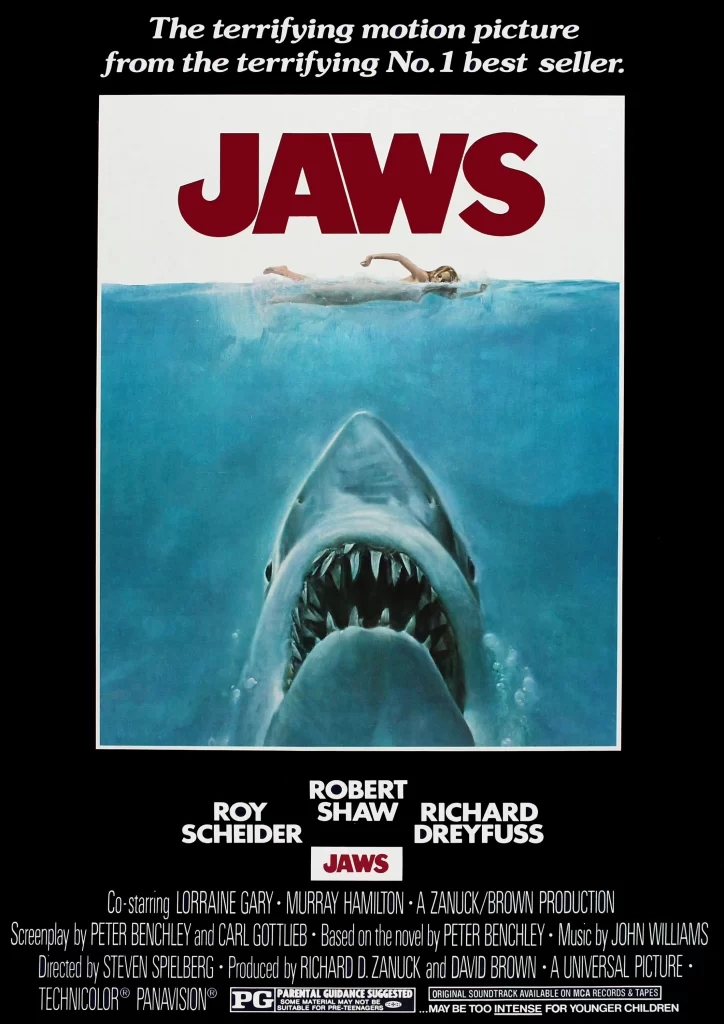
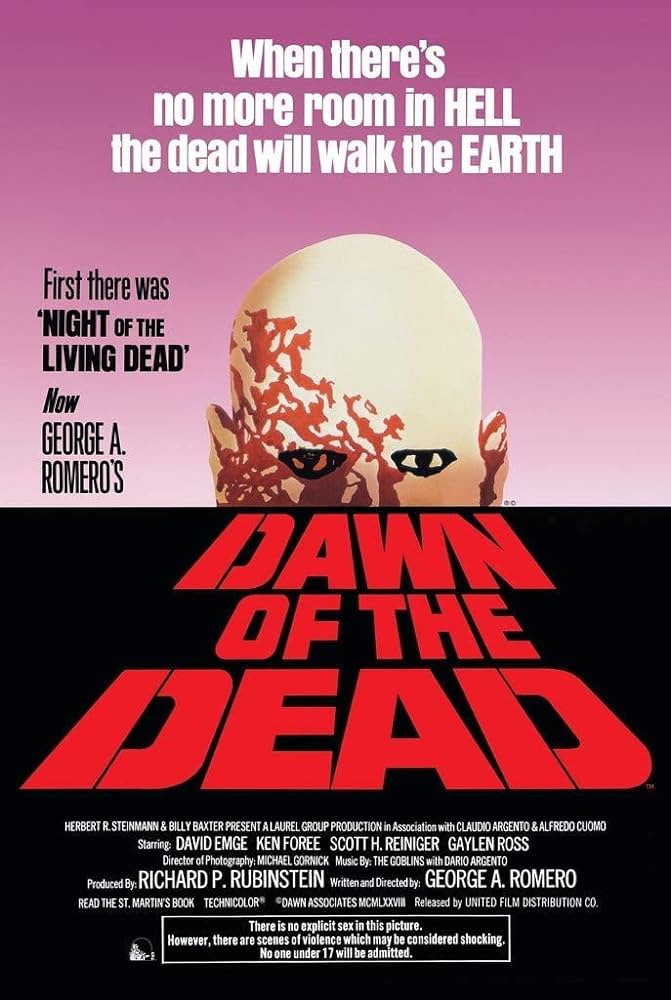
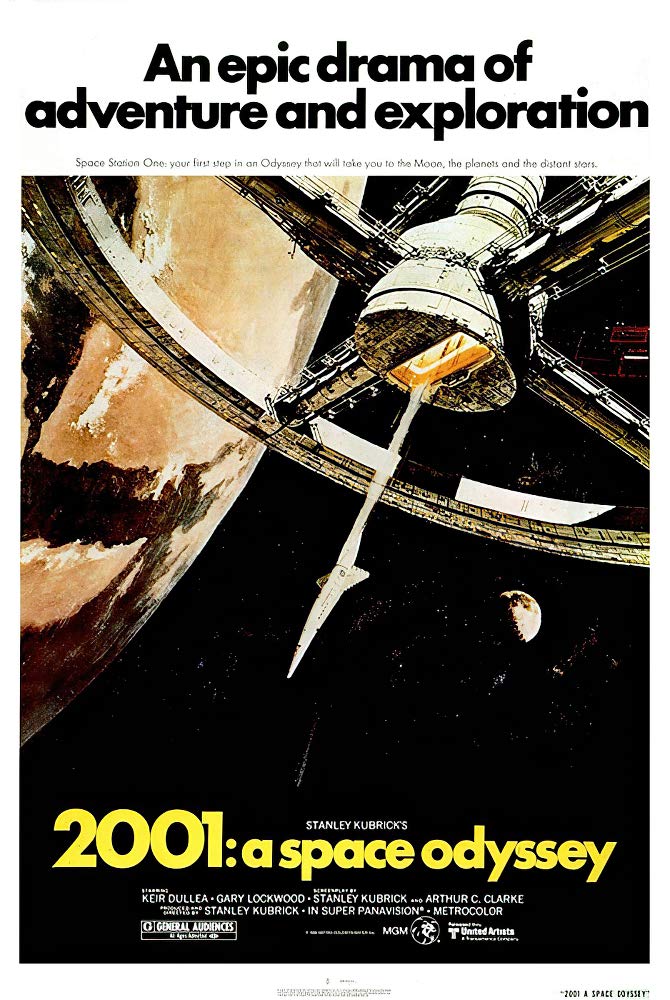
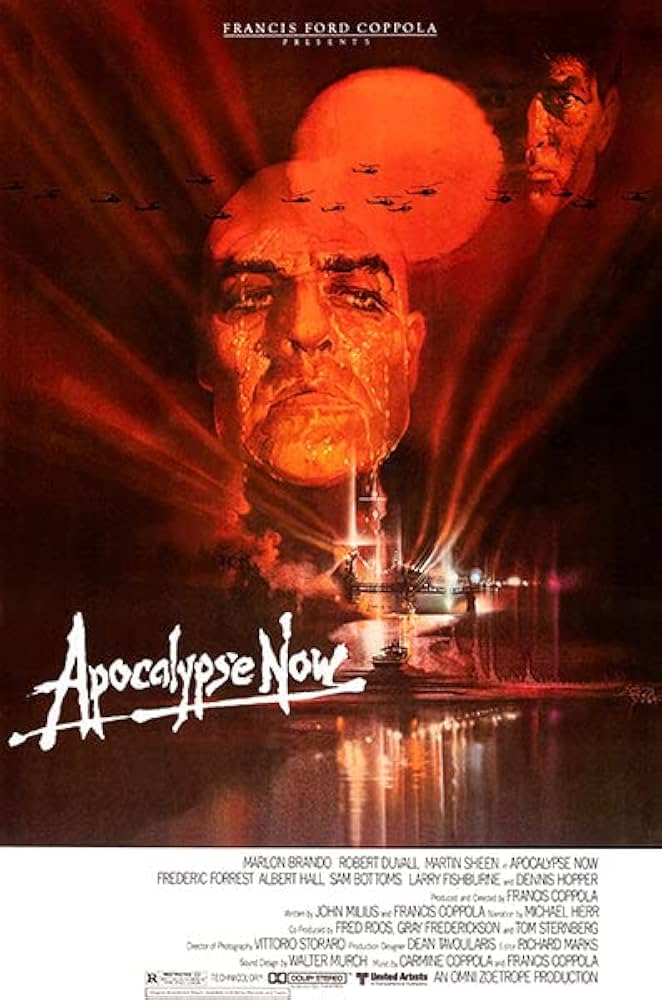
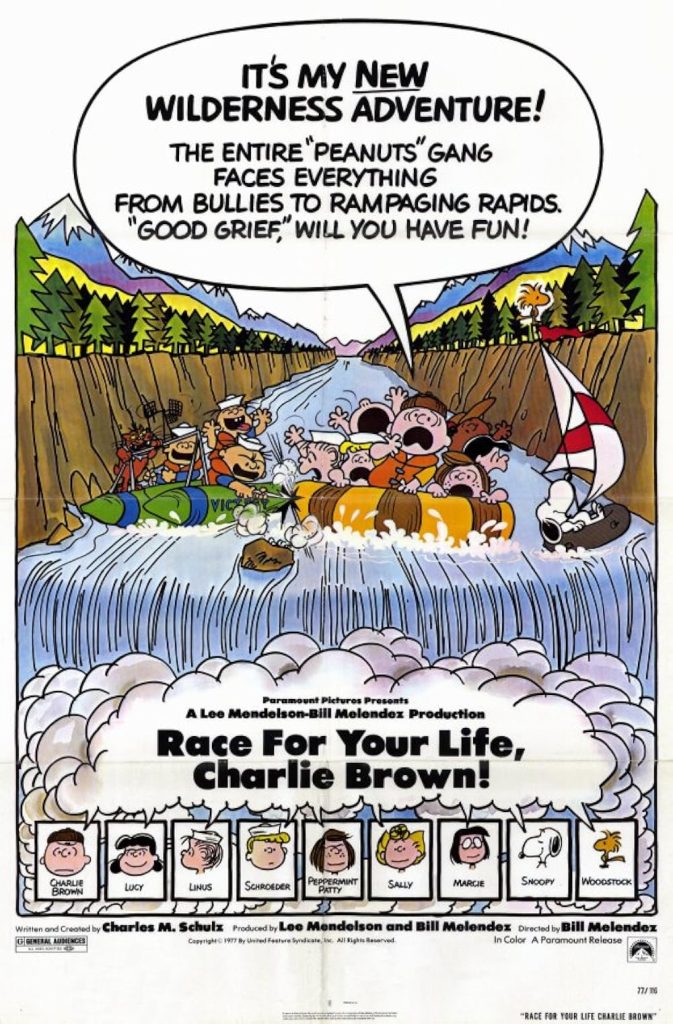



Recent comments